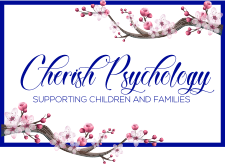Cherish Psychology is pleased to be able to offer a range of assessments to support our families. Assessments are standardised tools which allow Psychologists to gain additional information in relation to a child’s current presentation and are often requested by specialists to support in the collation of information around a child’s strengths and weaknesses. Cherish Psychology is able to offer the following assessments:

Weschler Intelligence Scale for Children, 5th Edition (WISC V):
The WISC V provides an overall cognitive profile for children aged 6yrs to 16yrs 11 months. The WISC V also provides information outlining a child’s cognitive strengths and weaknesses which may support the development of appropriate expectations and goals related to learning. Both Shareen and Dr Philippa are able to administer the WISC V.
Weschler Individual Achievement Test, 3rd Edition (WIAT III):
The WIAT III provides a picture of academic ability for children aged 4 yrs and above. The WIAT III uses the score from the WISC-V to predict how well the child will do on academic tasks (reading, writing, maths, oral expression) and gives an indication of abilities compared to peers. The WIAT III is often administered if Learning Difficulties are suspected. Both Shareen and Dr Philippa are able to administer the WIAT III.
Neurotype Assessments:
Autism assessments at Cherish Psychology consist of diagnostic interview and the administration of standardised assessments. Children are assessed using the Autism Diagnostic Observation Scale, 2nd Edition (ADOS 2) which is a semi-structured, standardised assessment of communication, social interaction, play, and restricted and repetitive behaviours. To support the collection of information, parents and teachers are then asked to complete the Autism Spectrum Rating Scale (ASRS), the Social Responsiveness Scale (SRS-2), the Behaviour Rating Inventory of Executive Function (BRIEF 2) and the Adaptive Behaviour Assessment System, 3rd Edition (ABAS 3). These measures provide information regarding the social, communication and behavioural preferences of assessed individuals. Shareen is able to administer Autism assessments.
ADHD assessments at Cherish Psychology consist of diagnostic interview and the administration of standardised assessments. To support the collection of information, parents and teachers are asked to complete the Conners 4 along with the Behaviour Rating Inventory of Executive Function (BRIEF 2). A cognitive assessment (WISC-V) is also recommended when assessing attention regulation skills. Shareen and Dr Philippa are able to administer ADHD assessments.
Conners, 4th Edition (Conners 4):
The Conners 4th Edition is an assessment tool used to obtain to observational date about a child’s behaviour. This instrument is designed to assess Attention Deficit/Hyperactivity Disorder (ADHD) and its most common co-morbid problems in children and adolescents aged 6 to 18 years old. The Conners 3 is typically completed by a child’s parents and teachers and identifies key areas a child may be struggling with, focusing on attention and concentration. Both Shareen and Dr Philippa are able to administer the Conners 4.
Conners Comprehensive Behaviour Rating Scale (CBRS):
The CBRS is used to better understand certain behavioural, social, and academic issues in children between 6 and 18 years old. The CBRS is typically completed by the parents and teachers of a child and is commonly used to support identification of challenges that may benefit from therapeutic intervention. Both Shareen and Dr Philippa are able to administer the CBRS.
Assessments of Executive Function:
The executive functions are a set of processes that are associated with the skills required to manage oneself and one’s resources in order to achieve a goal. It is an umbrella term for the neurologically-based skills involving mental control and self-regulation. Executive Function Assessments may be completed as a stand alone assessment to assess a child’s strengths and weakness and may also be used as part of a larger assessment. Commonly used EF assessments include the Behaviour Rating Inventory of Executive Function (BRIEF) and the Comprehensive Executive Function Inventory (CEFI). Both assessments use teacher/parent/self report to assess and the executive function profile of children aged 5-18yrs. Shareen and Dr Philippa are able to administer EF assessments.
Adaptive Behaviour Assessment System, 2nd Edition (ABAS 2):
The ABAS 2 assesses adaptive behaviour in individuals from birth to 89 years of age. This behaviour rating scale measures daily living skills including what people actually do, or can do, without the assistance of others. Functional assessments such as the ABAS 2 are often required for National Disability Insurance Scheme (NDIS) applications and may be used to show the impact a particular challenge is having on an individual’s day to day functioning (e.g. as part of an ASD assessment). Both Shareen and Dr Philippa are able to administer the ABAS 2.
Pricing for assessments can be discussed with either Dr Philippa or Shareen over the phone or at the clinic.
